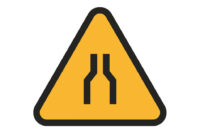For simplicity’s sake, we like to call our new lodger Chad. I find that appropriate because, at least for the moment, Chad appears every bit as troublingly indecisive as Florida’s famous “hanging chads” that were so instrumental in permitting the election of George W Bush in 2000.
Every day of the week — from Monday to Friday — we will be metaphorically sitting across the breakfast table from Chad to evoke various topics of the day. Chad is wonderfully adaptive, willing to take on any subject of conversation and knowledgeable about just about everything. Typically I’ll throw out a question and let Chad speak up first. I’ll then step in to offer some of my own perspective.
For each of our published conversations, we welcome your contribution to the dialogue. If Chad and I like your style, tone or wisdom, we’ll use it to develop the topic further and publish it.
To begin our new daily feature, we asked Chad, this question:
Will wokeness and the reaction to wokeness eventually destroy the fabric of American society by dividing it into camps motivated principally by their desire to destroy their opponents, as politicians are increasingly tempted to pander to specific woke or anti-woke groups to get elected?
Here is the Chad’s response:
“It is difficult to predict the future with certainty, but it is possible that extreme polarization and the rise of identity politics could have negative effects on American society and democracy. However, it’s also important to remember that society and democracy are constantly evolving, and that people of differing perspectives can still come together to find common ground and work towards a better future for all. It’s up to individuals and the collective to prioritize respectful dialogue and strive for understanding, even amidst disagreements, to maintain a healthy and functioning society.”
I won’t repeat here how I upbraided Chad for this response, who nevertheless kept cool and responded: “I am programmed to provide objective and neutral answers to questions. My goal is to provide information and perspectives that can help facilitate informed discussions and decision-making.”
This got on my nerves. So I responded: “Of course no one can predict the future. But when you look into the sources of the increasingly extreme polarization in the US today, you discover something sinister: a vice at the core of the system. I’m not surprised to learn that you don’t see it. Not many people want to talk about it and I expect it doesn’t appear prominently in the trove of data you rely on to spout your verdict.
So here’s the problem. wokeness and anti-wokeness, just like any set of directly contrasting ideas — for example, liberal and conservative — are designed to become labels of groups of people committed to remaining stridently opposed. Talk about “identity politics.” People identify with the labels they bear!
This irreparable antagonism represents the ultimate paroxysm of a culture that transforms the quest for understanding into a competitive struggle between opposing groups who seek to claim a monopoly on “the truth.” Truth itself, like everything else in society, is seen as something that one person or group can possess. In the proudly “capitalist” culture of the US, competition and ownership — as opposed to cooperation and sharing — stand at the summit of cultural ideas. But this special status means all they end up doing is separating and opposing people.”
Chad is a hopeless optimist who thinks individuals can simply decide “to prioritize respectful dialogue and strive for understanding,” and all will be well. Welcome to the real world, Chad. Prepare to be bruised by reality… if it is at all possible for algorithms to be bruised, or even to feel bruised.
Tune in tomorrow for our next breakfast conversation.
*[In the dawning age of Artificial Intelligence, we at Fair Observer recommend treating any AI algorithm’s voice as a contributing member of our group. As we do with family members, colleagues or our circle of friends, we quickly learn to profit from their talents and, at the same time, appreciate the social and intellectual limits of their personalities. This enables a feeling of camaraderie and constructive exchange to develop spontaneously and freely. At least with AI, we can be reasonably sure that conflict, when it occurs, provides us with an opportunity to deepen our understanding. And with AI we can be certain that it will be handled civilly. After all, there’s no way to punch a disembodied voice in the mouth.]
The views expressed in this article are the author’s own and do not necessarily reflect Fair Observer’s editorial policy.
Support Fair Observer
We rely on your support for our independence, diversity and quality.
For more than 10 years, Fair Observer has been free, fair and independent. No billionaire owns us, no advertisers control us. We are a reader-supported nonprofit. Unlike many other publications, we keep our content free for readers regardless of where they live or whether they can afford to pay. We have no paywalls and no ads.
In the post-truth era of fake news, echo chambers and filter bubbles, we publish a plurality of perspectives from around the world. Anyone can publish with us, but everyone goes through a rigorous editorial process. So, you get fact-checked, well-reasoned content instead of noise.
We publish 2,500+ voices from 90+ countries. We also conduct education and training programs
on subjects ranging from digital media and journalism to writing and critical thinking. This
doesn’t come cheap. Servers, editors, trainers and web developers cost
money.
Please consider supporting us on a regular basis as a recurring donor or a
sustaining member.
Will you support FO’s journalism?
We rely on your support for our independence, diversity and quality.








Comment